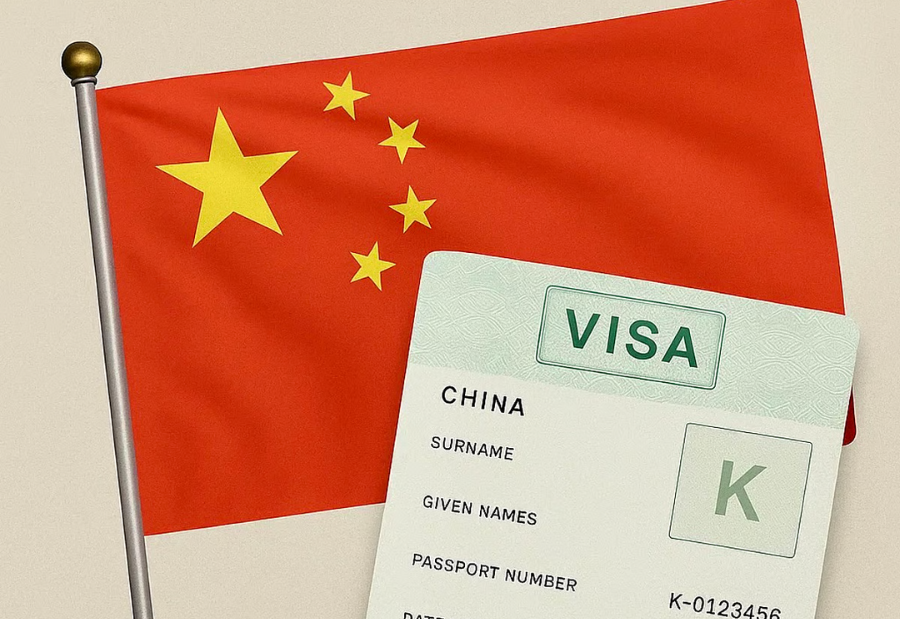China has introduced a new K-visa program to attract global science and technology professionals, positioning itself as a strong competitor to the United States in the global talent race.
For Indian IT professional Vaishnavi Srinivasagopalan, who has worked in both India and the U.S., this new visa could turn her dream of working in China into reality. “(The) K-visa for China (is) an equivalent to the H-1B for the U.S.,” she said, adding that it offers a good opportunity for people like her who want to work abroad.
The K-visa, rolled out last month, aims to strengthen China’s position in high-tech fields such as artificial intelligence, semiconductors and robotics. Unlike existing visas such as the R-visa, the K-visa allows applicants to apply even without a job offer.
This initiative comes as the U.S. faces growing uncertainty over its H-1B visa policies under President Donald Trump, including a proposal to raise application fees for skilled foreign workers to 100,000 dollars. These changes have caused many international students and professionals to look for opportunities elsewhere.
“Students studying in the U.S. hoped for an (H-1B) visa, but currently this is an issue,” said Bikash Kali Das, an Indian master’s student at Sichuan University.
Analysts say China sees this as a chance to position itself as more welcoming to global talent and investment. However, the country continues to face challenges such as high youth unemployment and a persistent skills gap in advanced technology sectors.
Although some Chinese professionals worry that the new visa could intensify job competition, experts argue that bringing in skilled foreigners could boost innovation and economic growth. “Beijing will need to emphasise how select foreign talent can create, not take, local jobs,” said Michael Feller, chief strategist at a consultancy firm.
Despite these efforts, language barriers, strict internet regulations and limited residency options remain obstacles for foreign professionals considering work in China.
While the U.S. continues to lead in research and maintains global appeal due to the widespread use of English, China’s move signals its growing ambition to become a major hub for global tech talent.
Also read: Viksit Workforce for a Viksit Bharat
Do Follow: The Mainstream formerly known as CIO News LinkedIn Account | The Mainstream formerly known as CIO News Facebook | The Mainstream formerly known as CIO News Youtube | The Mainstream formerly known as CIO News Twitter
About us:
The Mainstream formerly known as CIO News is a premier platform dedicated to delivering latest news, updates, and insights from the tech industry. With its strong foundation of intellectual property and thought leadership, the platform is well-positioned to stay ahead of the curve and lead conversations about how technology shapes our world. From its early days as CIO News to its rebranding as The Mainstream on November 28, 2024, it has been expanding its global reach, targeting key markets in the Middle East & Africa, ASEAN, the USA, and the UK. The Mainstream is a vision to put technology at the center of every conversation, inspiring professionals and organizations to embrace the future of tech.




